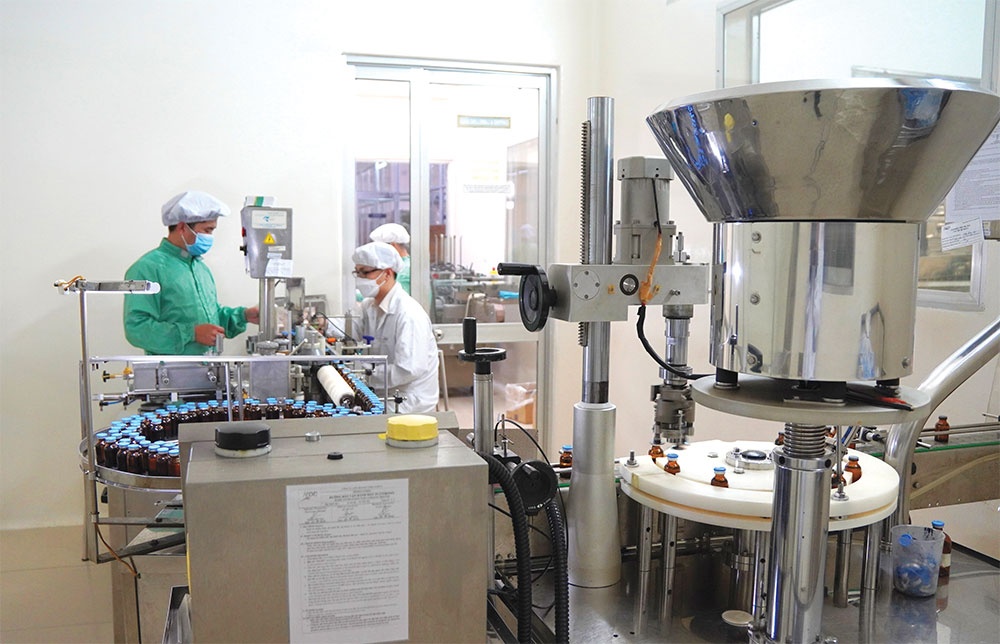Indian pharma groups look to local manufacturing
Under current legislation, foreign-invested companies have no right to distribution of drugs in Vietnam. The country has made efforts to improve the business climate by issuing and amending new laws on businesses and enterprises to facilitate foreign investment in the healthcare sector. However, the investment inflows remain lower than expected.
 |
| Indian pharma groups look to local manufacturing, illustration photo |
In chapter 2 of the pharma law, on state policies on development of the pharmacy industry, many policies have not been concretised or guided for implementation. These include creating improvements for ordering; procedures for submitting applications for registration of generic drugs with nearby expiration of the patent or relevant proprietary; priority orders and procedures for registration of marketing authorisation certificates and import licensing of rare drugs; and on developing the distribution network and pharmacy chain.
Therefore, these policies have not been fully implemented. In order to make investments favourable, there needs to be certain amendments in the current pharma law.
Promoting the development of the pharmaceutical industry is vital by giving priority to research, accepting technology transfer, and producing generic drugs, high-tech drugs, biological drugs, medicinal materials, standardised herbal medicines, and raw materials from locally available medicinal ingredients sources, among other areas.
Some concepts/definitions in the 2016 Law on Pharma are unclear, undefined, or have not kept up with global trends, such as new chemical entities (NCEs) versus super generics. Current regulations limit the country to have access to NCEs at a reasonable price. As per current regulations, for an NCE to be registered there needs to be three phases of clinical trials and also a second legal document from the European Medicines Agency or Stringent Regulatory Authorities if the issuing authority of the manufacturing country is not on their lists.
Many of our members wish to have contract manufacturing carried out to support the existing local manufacturers, however in the pharma law, a foreign-invested group cannot buy back products produced locally. There has to be favourable changes in the law, including clarity on import-export to encourage more local manufacturing is carried out by our members.
Meanwhile, there is no specific principle to review the declared prices and the lack of price information in ASEAN countries to compare prices that cause delay for publishing declared prices to the website of the Drug Administration of Vietnam. The results of national-level centralised bidding have not yet ensured the completion schedule, and cause loss of tenders and lost business for pharma companies.
Vietnam must learn from other nations nearby. In the Philippines, Thailand, and Indonesia, governments focus on generics with good quality and affordable pricing. This focus has helped them cope with the constraints in budgets and grow access to quality medicines for its citizens
Vietnam has signed several free trade agreements, which is encouraging for Indian investors to set up their manufacturing bases for global export. However, there needs to be more policy changes to encourage generic investments from India.
Looking forward, many members are in discussions and in various stages to set up local manufacturing in Vietnam. There is also focus on processed/tech transfer and first biosimilar, super generic, generic near expiration of patent, and NCEs to local manufacturers in Vietnam.
| Pharma groups step up competition Pharma giant extends partnership with Cho Ray Hospital Top pharma names advocate for sweeping legal revamps Multinational pharma groups keen on robust partnerships |
(*)Navendu Kumar - Head of Pharma & Healthcare Working Group, Indian Chamber of Commerce in Hanoi
What the stars mean:
★ Poor ★ ★ Promising ★★★ Good ★★★★ Very good ★★★★★ Exceptional
Themes: Healthcare Platform
- Opella and Long Chau join forces to enhance digestive and bone health
- Hanoi intensifies airport monitoring amid Nipah disease risks
- Cosmetics rules set for overhaul under draft decree
- Policy obstacles being addressed in drug licensing and renewal
- Sanofi, Long Chau Pharmacy relaunch medicine blister pack collection initiative
Related Contents
Latest News
More News
- A golden time to shine within ASEAN (February 19, 2026 | 20:22)
- Vietnam’s pivotal year for advancing sustainability (February 19, 2026 | 08:44)
- Strengthening the core role of industry and trade (February 19, 2026 | 08:35)
- Future orientations for healthcare improvements (February 19, 2026 | 08:29)
- Infrastructure orientations suitable for a new chapter (February 19, 2026 | 08:15)
- Innovation breakthroughs that can elevate the nation (February 19, 2026 | 08:08)
- ABB Robotics hosts SOMA Value Provider Conference in Vietnam (February 19, 2026 | 08:00)
- Entire financial sector steps firmly into a new spring (February 17, 2026 | 13:40)
- Digital security fundamental for better and faster decision-making (February 13, 2026 | 10:50)
- Aircraft makers urge out-the-box thinking (February 13, 2026 | 10:39)

 Tag:
Tag:


















 Mobile Version
Mobile Version